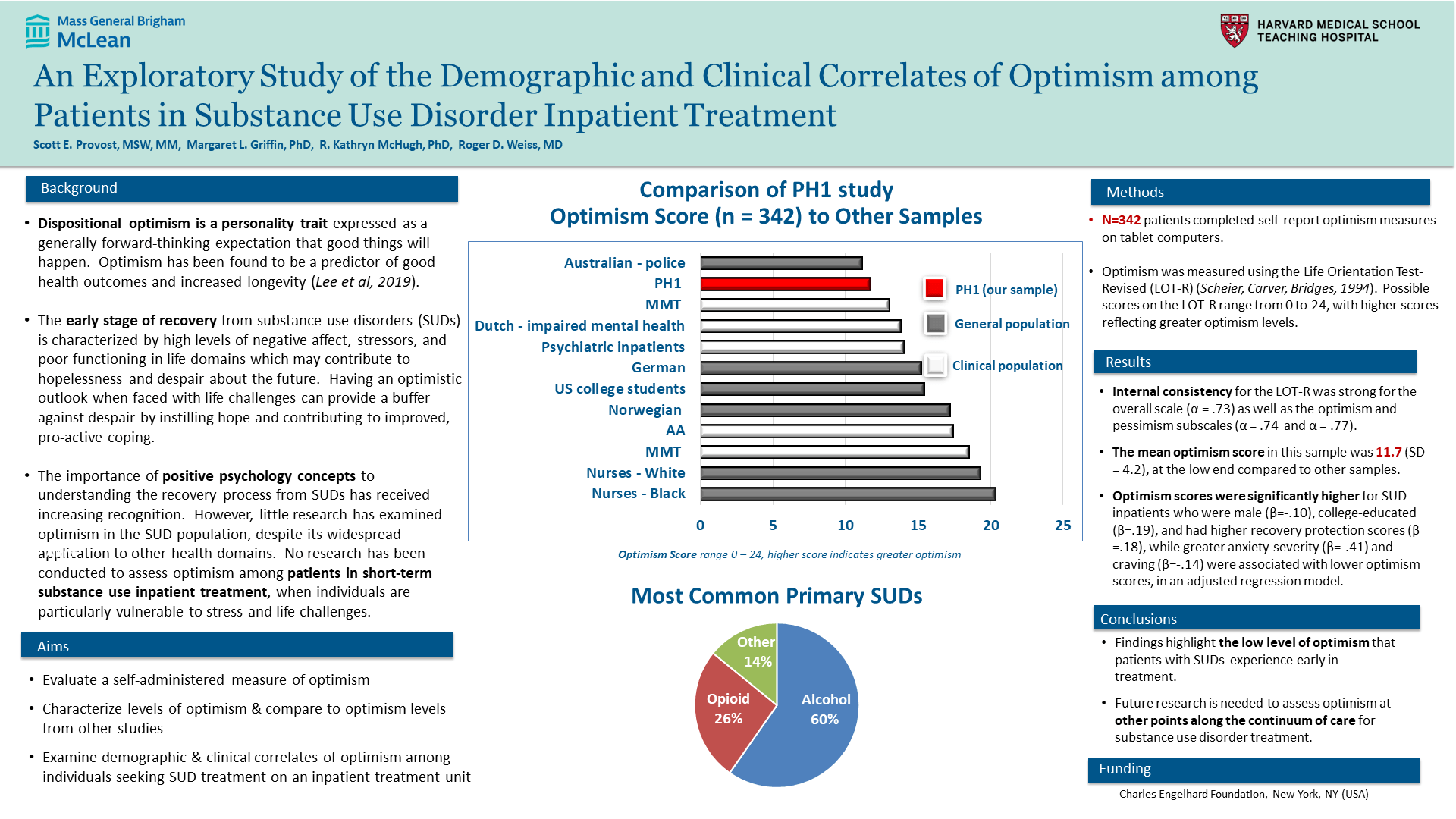Scientific Abstract
Background: Early recovery from substance use disorders (SUDs) is characterized by negative affect, stressors, and poor functioning in life domains which may contribute to despair and hopelessness. Having an optimistic outlook may provide a buffer against despair, and optimism has been found to be a predictor of good health outcomes and increased longevity. Although clinical literature on SUDs has focused on reduction of problem symptoms, there has been an increased recognition of positive psychology to understand the recovery process from SUDs. However, little research has examined optimism in the SUD population. No research has been conducted to assess optimism among patients in short-term inpatient treatment. The study aim is to evaluate a self-administered measure of optimism, characterize levels of optimism, and examine demographic and clinical correlates of optimism among individuals seeking SUD treatment on an inpatient treatment unit – a treatment stage when individuals are particularly vulnerable to stress and life challenges.
Methods: Patients (n = 355) completed self-report measures. Optimism was measured using the Life Orientation Test-Revised (LOT-R). Possible scores on the LOT-R range from 0 to 24, with higher scores reflecting greater optimism. Demographic and clinical variables were also assessed. Comparison studies that reported optimism scores were selected to provide context for the optimism scores in this study.
Results: Internal consistency for the LOT-R was good for the overall scale (α = .73). The average optimism score was 11.7 (SD = 4.2), which was lower than the optimism scores reported in the selected comparison studies. Optimism was higher for SUD inpatients with college education and those with higher scores on the recovery protection factor, while greater anxiety severity was associated with lower optimism scores.
Conclusions: Findings reveal low optimism among patients in substance use inpatient treatment. Research is needed to assess optimism at other points along the continuum of care for substance use treatment; approaches to bolster optimism and hope in this population may offer promising targets for intervention.
Search posters

